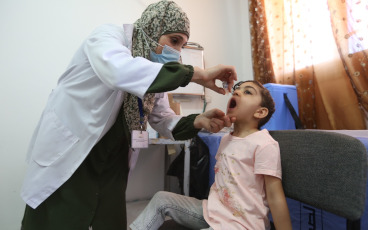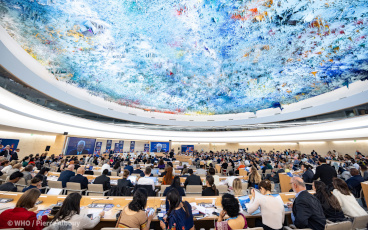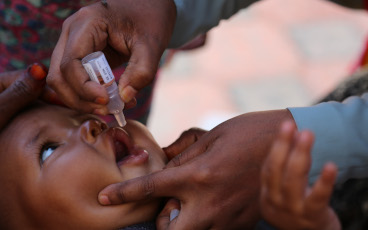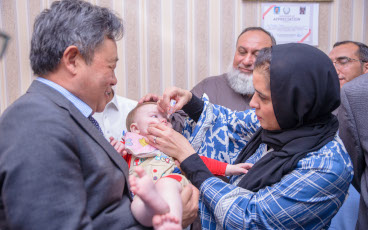Italy provides €4.5 million to deliver polio vaccines in Afghanistan and Pakistan
Italy’s contribution supports efforts to vaccinate every last child against polio in the only two countries reporting cases of the disease in 2017.

Italy has provided €4.5 million to support efforts to reach and vaccinate all children under five years of age in Pakistan and Afghanistan – the only two countries worldwide that have reported polio cases this year.
In Afghanistan, the contribution will be used to support and train vaccinators and social mobilizers in generating demand for vaccination, the delivery of vaccines and monitoring whether vaccination activities are well-implemented. In Pakistan, the contribution will support vaccination campaigns in the most challenging areas of the country, as well as the immunization of communities that are at particularly high risk due to their mobility, through tactics such as giving vaccine established transit points.
The Bill & Melinda Gates Foundation have matched Italy’s contribution, doubling its impact to €9 million.
Polio is a highly infectious but entirely preventable disease which remains endemic in only three countries – Afghanistan, Pakistan and Nigeria. When the polio eradication effort was launched in 1988, there were 350,000 cases of polio every year across 125 polio-endemic countries. In 2017, there are 13 cases to date globally – 8 cases in Afghanistan and 5 in Pakistan, with Nigeria not recording any cases for more than 12 months.
This remarkable progress is thanks to the tireless work of committed front line health workers, governments and the five partners of the Global Polio Eradication Initiative: UNICEF, WHO, Rotary International, the US Centers for Disease Control and Prevention, and the Bill & Melinda Gates Foundation.
“The Italian Minister of Foreign Affairs, Angelino Alfano, underlined Italy’s commitment to a polio-free world for all future generations. “Italy is proud to support this immunization initiative which will not only rid the world of this devastating disease but improve children’s health and bring health returns and productivity gains for communities and countries’ economies,” Minister Alfano said.
UNICEF Director of Polio Eradication Akhil Iyer said that the funding would support efforts to generate community demand for vaccination and deliver vaccines in high-risk polio-endemic areas. “Italy’s contribution is critical in helping us to reach every last child in some of the world’s most challenging contexts, and to help us prove that we can live in a world where no child need be left behind,” Mr Iyer said.
WHO’s Director of Polio Eradication, Michel Zaffran, said new funding such as Italy’s was essential to ensure all children were covered during immunization campaigns. “As we reach the endgame of the polio eradication effort, the vaccination of what we call mobile populations – communities which are migrant or on the move – is essential to ensure all children are protected and the virus cannot spread from one area to another. This funding will directly help us reach and protect those most vulnerable populations,” Mr Zaffran said.












